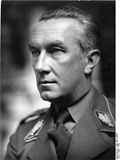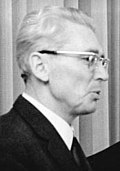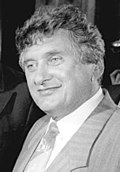| Portrait | Name
(Birth–Death) | Term of office | Political party |
|---|
| Took office | Left office | Days |
|---|
| West Berlin (1948–1990) |
|---|
| West Berlin was de facto part of the Federal Republic of Germany (West Germany) |
| 1 | 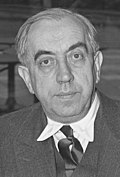 | Ernst Reuter
(1889–1953) | 1 February 1951 | 29 September 1953 | 971 | Social Democratic Party |
|---|
| 2 | 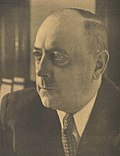 | Walther Schreiber
(1884–1958) | 29 September 1953 | 11 January 1955 | 469 | Christian Democratic Union |
|---|
| 3 |  | Otto Suhr
(1894–1957) | 11 January 1955 | 30 August 1957
(died in office) | 962 | Social Democratic Party |
|---|
| 4 |  | Willy Brandt
(1913–1992) | 3 October 1957 | 1 December 1966 | 3346 | Social Democratic Party |
|---|
| 5 | 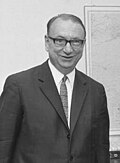 | Heinrich Albertz
(1915–1993) | 1 December 1966 | 19 October 1967 | 322 | Social Democratic Party |
|---|
| 6 |  | Klaus Schütz
(1926–2012) | 19 October 1967 | 2 May 1977 | 3483 | Social Democratic Party |
|---|
| 7 |  | Dietrich Stobbe
(1938–2011) | 2 May 1978 | 23 January 1981 | 1362 | Social Democratic Party |
|---|
| 8 |  | Hans-Jochen Vogel
(1926–2020) | 23 January 1981 | 11 June 1981 | 139 | Social Democratic Party |
|---|
| 9 |  | Richard von Weizsäcker
(1920–2015) | 11 June 1981 | 9 February 1984 | 973 | Christian Democratic Union |
|---|
| 10 | 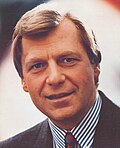 | Eberhard Diepgen
(born 1941) | 9 February 1984 | 16 March 1989 | 1862 | Christian Democratic Union |
|---|
| 11 | 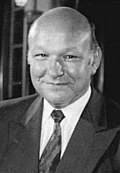 | Walter Momper
(born 1945) | 16 March 1989 | 3 October 1990 | 566 | Social Democratic Party |
|---|
| West Berlin was reunited with East Berlin on October 3, 1990 and dissolved. |
| Reunified Berlin (1990–present) |
|---|
| City-state and capital city of the Federal Republic of Germany |
|  | Walter Momper
(born 1945) &
Tino Schwierzina [2]
(1927–2003) | 3 October 1990 | 24 January 1991 | 113 | Social Democratic Party |
|---|
12
(10) |  | Eberhard Diepgen
(born 1941) | 24 January 1991 | 16 June 2001 | 3796 | Christian Democratic Union |
|---|
| 13 |  | Klaus Wowereit
(born 1953) | 16 June 2001 | 11 December 2014 | 4926 | Social Democratic Party |
|---|
| 14 |  | Michael Müller
(born 1964) | 11 December 2014 | 21 December 2021 | 2567 | Social Democratic Party |
|---|
| 15 |  | Franziska Giffey
(born 1978) | 21 December 2021 [3] | 27 April 2023 | 492 | Social Democratic Party |
|---|
| 16 |  | Kai Wegner
(born 1972) | 27 April 2023 | Incumbent | 995 | Christian Democratic Union |
|---|















